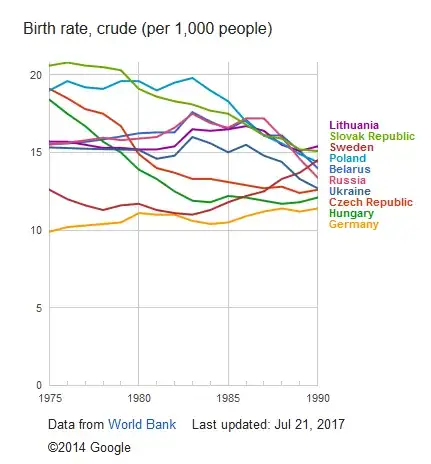The Economist states:
Alternatively, jokes its president, Cezary Kazmierczak, it should cut off power two nights a week to keep Poles at home in the evening. When a curfew was imposed in the 1980s, the birth rate soared.
Is the above true? And also, what was the estimated boost to the birth rate?
(I imagine that if there is some truth to the matter, economists, sociologists, demographers, and other academics will have studied the matter and attempted to estimate the effect of the curfew on the birth rate.)
